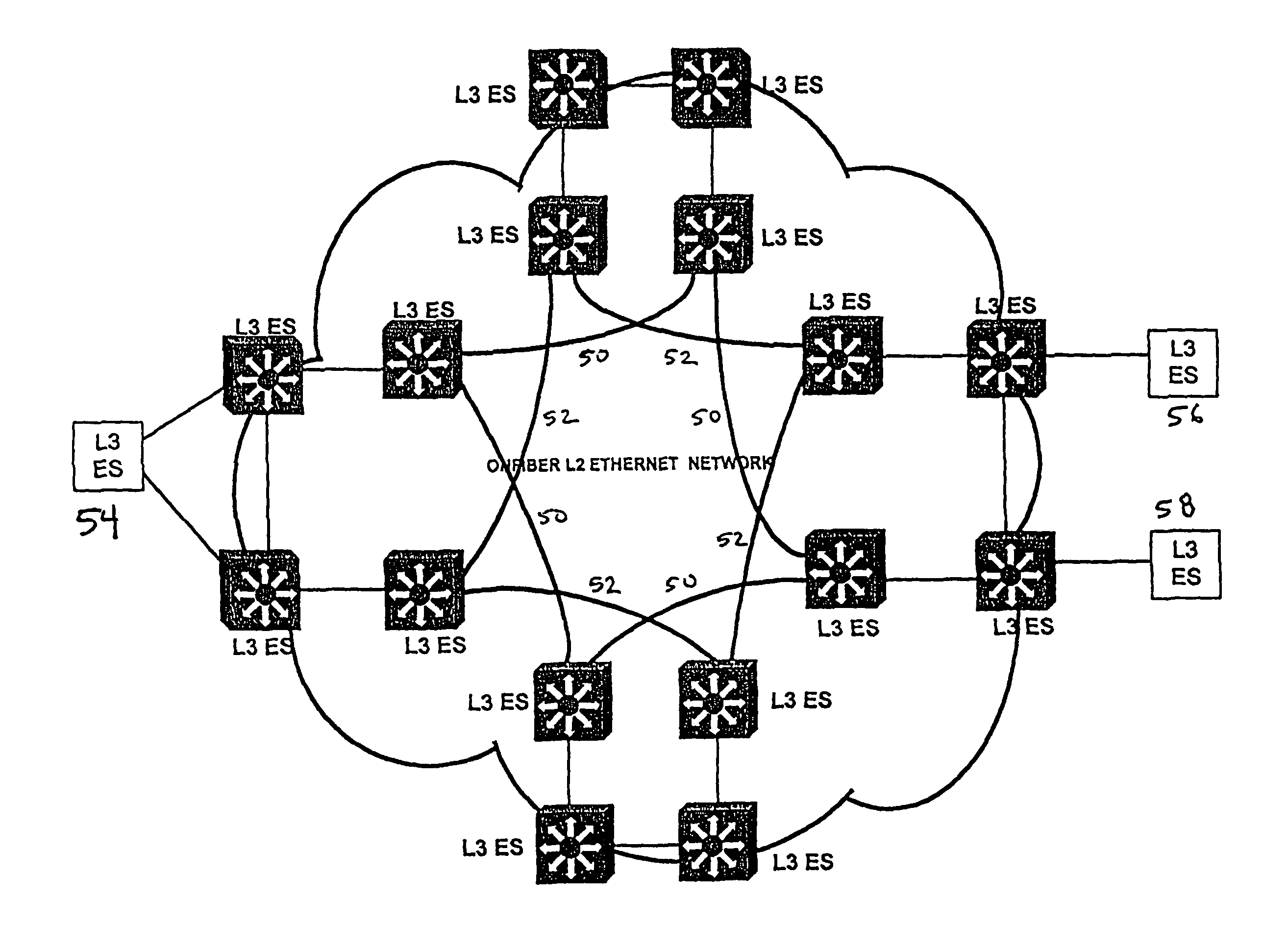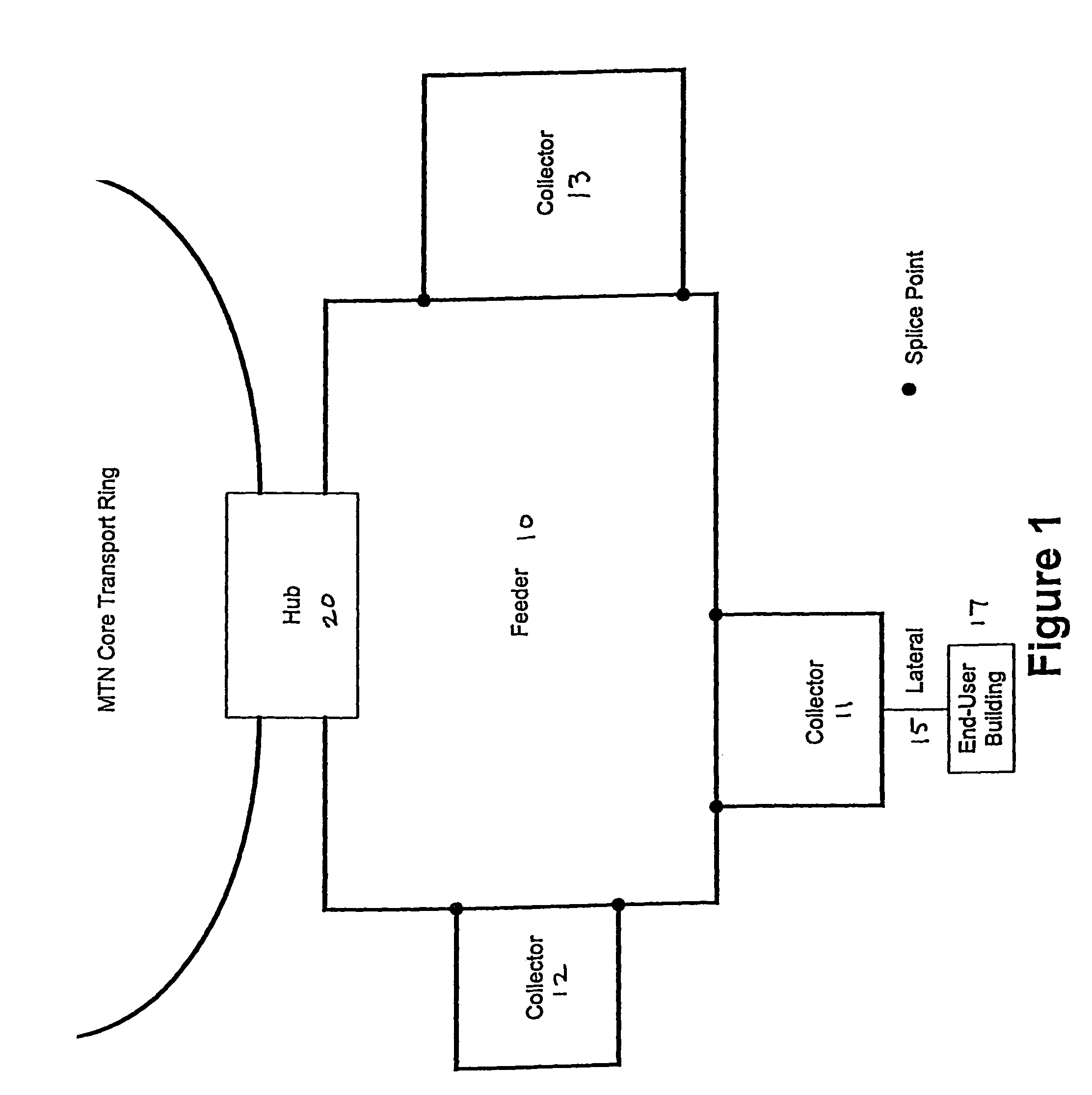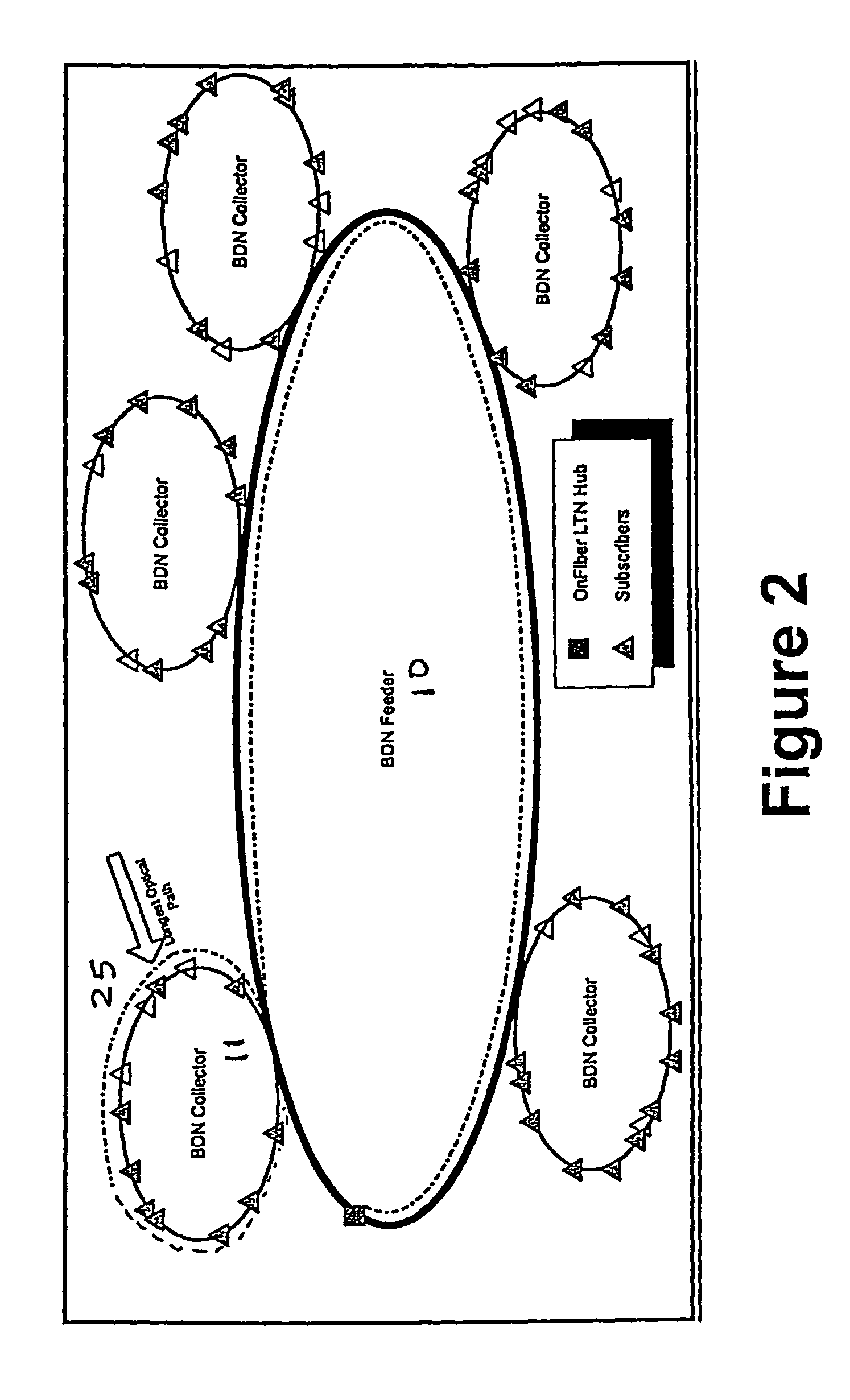Metropolitan area local access service system
a local access service and metropolis technology, applied in the field of fiber optic communications networks, can solve the problems of minor changes in infrastructure content, not end-user data content, and achieve the effect of surviving any single network failur
- Summary
- Abstract
- Description
- Claims
- Application Information
AI Technical Summary
Benefits of technology
Problems solved by technology
Method used
Image
Examples
second alternative embodiment
[0057]In this scenario, the distribution network provider deploys a pair of nested Feeder rings 30 in each distribution network. The collectors 31, 32 and 33 closest to the hub 20 are placed on the nested feeder 30, while the collectors 40, 41 and 42 located farther out are placed on the longer feeder 40. FIG. 3 displays a generic example of this configuration. With the FIG. 3 type of configuration, the longer feeder 40 can remain longer (e.g., more than 7 miles in circumference) without stranding capacity because the collectors closest to the LTN hub 20 have a shorter path available to them.
[0058]Although the additional cross-section of fiber that completes the interior Feeder may increase the cost of the distribution network, it may also provide the opportunity to place one or more additional Collectors that would have otherwise been difficult to attach to the single Feeder design.
[0059]Decision Rule for Distribution Network Variants
[0060]In significant part, the distribution netw...
PUM
 Login to View More
Login to View More Abstract
Description
Claims
Application Information
 Login to View More
Login to View More - R&D
- Intellectual Property
- Life Sciences
- Materials
- Tech Scout
- Unparalleled Data Quality
- Higher Quality Content
- 60% Fewer Hallucinations
Browse by: Latest US Patents, China's latest patents, Technical Efficacy Thesaurus, Application Domain, Technology Topic, Popular Technical Reports.
© 2025 PatSnap. All rights reserved.Legal|Privacy policy|Modern Slavery Act Transparency Statement|Sitemap|About US| Contact US: help@patsnap.com



